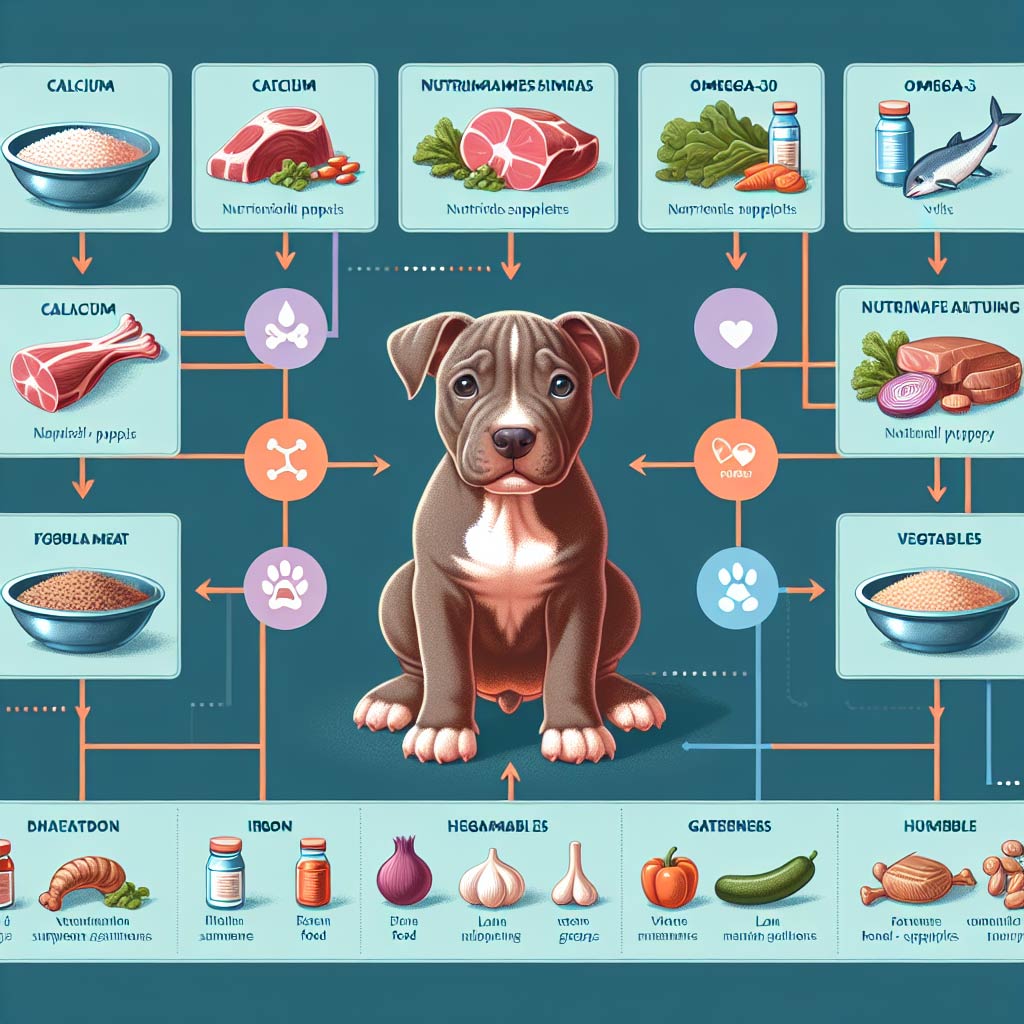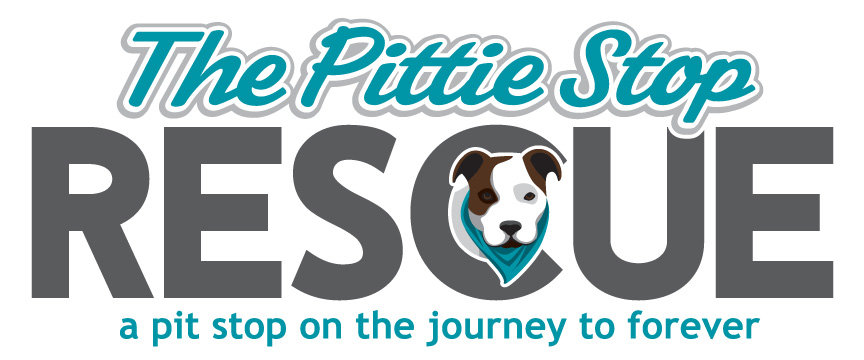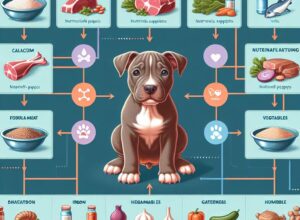
Key Takeaways
- Pitbull puppies require specific nutrients for optimal growth and health.
- Understanding dog food labels is crucial for ensuring your pup gets what they need.
- Core supplements like calcium, phosphorus, DHA, and EPA are vital for Pitbull puppy development.
- Supplements can enhance your puppy’s immunity and overall well-being.
- Always consult with a vet before adding supplements to your Pitbull puppy’s diet.
Article-at-a-Glance: Vital Supplements for Pitbull Puppies’ Growth and Health
As a loving Pitbull puppy owner, you want to make sure your furry friend grows up strong and healthy. To achieve this, providing the right supplements alongside a balanced diet is key. In this article, we’ll explore the essential supplements that support your Pitbull puppy’s development, boost their immune system, and ensure they have the energy to play and learn. We’ll also guide you through reading dog food labels and understanding what nutrients are non-negotiable for your pup’s diet.
Laying the Foundation: Pitbull Puppy Nutrition Basics
Before we jump into the world of supplements, it’s important to establish a solid nutritional foundation for your Pitbull puppy. A well-balanced diet is the cornerstone of good health. Puppies, much like human babies, need a variety of nutrients to grow and develop properly. These include proteins, fats, carbohydrates, vitamins, and minerals. While quality dog food should provide a comprehensive balance of these nutrients, supplements can fill in any gaps and offer additional benefits.
Nutrients That Power Your Pitbull Puppy’s Development
When it comes to your Pitbull puppy’s diet, there are a few key players in the nutrient game:
- Protein: Supports muscle growth and repair.
- Fats: Essential for energy and the development of the brain and nervous system.
- Carbohydrates: Provide a quick source of energy and help with digestion.
- Vitamins and Minerals: Crucial for immune function, bone health, and overall well-being.
- Water: Hydration is just as important for puppies as it is for adult dogs.
Each of these components plays a specific role in your puppy’s growth, and missing out on any one of them can lead to health issues down the line.
Understanding Dog Food Labels and Nutritional Requirements
Choosing the right dog food for your Pitbull puppy can be a maze of confusing terms and ingredients. However, learning to decipher dog food labels is like having a map to the best choices for your pup’s health. Look for foods that list a high-quality protein source as the first ingredient. Avoid foods with vague descriptions like “meat by-products” or “animal fat.” Instead, opt for named sources like “chicken” or “beef.”
Remember, the percentages listed on the label for protein, fat, and fiber are a good starting point, but they don’t tell the whole story. The quality and digestibility of the ingredients are what truly determine the nutritional value of the food.
The Building Blocks: Core Supplements for Pitbull Puppies
Even with the best dog food, there are times when your Pitbull puppy might need an extra nutritional boost. That’s where supplements come in. Here are some of the core supplements that can help your puppy thrive:
- Calcium and Phosphorus: For strong bones and teeth.
- DHA and EPA: Omega-3 fatty acids crucial for brain development.
- Vitamin E and Selenium: Antioxidants that protect the body’s cells.
- Probiotics: For a healthy and balanced gut microbiome.
- Glucosamine and Chondroitin: Support joint health and mobility.
It’s essential to consult with your veterinarian before starting any supplement regimen. They can provide personalized advice based on your puppy’s specific needs and health status.
1. Strong Bones: Calcium and Phosphorus
Like the framework of a house, calcium and phosphorus are the minerals that make up the strong structure of your Pitbull puppy’s bones and teeth. Calcium isn’t just about bone health; it also plays a crucial role in nerve function and blood clotting. Phosphorus partners with calcium to ensure the right balance and proper bone formation. Too little of these minerals can lead to weak bones, while too much can harm the kidneys and interfere with the absorption of other essential nutrients.
Most puppy foods are formulated with the right balance of calcium and phosphorus, but if your vet recommends a supplement, it’s vital to follow their dosage instructions carefully. Remember, balance is key, and it’s all about maintaining that perfect ratio for peak pup health.
2. Brain Development: DHA and EPA
DHA (docosahexaenoic acid) and EPA (eicosapentaenoic acid) are types of Omega-3 fatty acids that play a star role in the development of your Pitbull puppy’s brain and eyes. Think of DHA as the building block for brain cells, helping your pup learn and retain training. EPA, on the other hand, acts as an anti-inflammatory, supporting your puppy’s heart health and joint function.
These Omega-3s are found in fish oil and flaxseed oil, but fish oil is the preferred source for DHA and EPA. A shiny coat and healthy skin are bonus benefits that come along with these brainy fats. Just a few drops of fish oil on their food can make a world of difference for your growing buddy.
Boosting Immunity: Supplements to Shield Your Growing Pup
Your Pitbull puppy’s immune system is their defense against the outside world. It’s like a tiny army inside their body, fighting off sickness and keeping them healthy. To help this army stay strong, certain supplements can give it the upper hand against potential invaders.
1. Defense Against Illness: Vitamin E and Selenium
Vitamin E is a powerful antioxidant that protects your puppy’s cells from damage. It’s like a shield for their body, guarding against the stress of everyday puppy life. Selenium works hand-in-hand with Vitamin E, and together they pack a punch against oxidative stress and support a robust immune system.
These nutrients are often included in high-quality dog foods, but if your vet suggests an extra boost, they’ll guide you on the right supplement. Just a little extra can help your Pitbull puppy stay on top of their game, ready to play and explore without fear.
2. The Role of Probiotics in Gut Health
Probiotics are the friendly bacteria that live in your Pitbull puppy’s gut. They’re like tiny superheroes, battling bad bacteria and keeping the digestive system running smoothly. A healthy gut means better absorption of nutrients and a strong barrier against pathogens. Probiotics can also help ease tummy troubles, making mealtime a happy time for your pup.
Adding probiotics to your puppy’s diet is simple. Many high-quality puppy foods already include them, but you can also find them in supplements like powders or chews. A daily dose of good bacteria can make a big difference in your Pitbull’s overall well-being.
Supporting Muscle and Joint Health
Muscles and joints are the moving parts that let your Pitbull puppy run, jump, and play. Keeping these parts healthy is essential for a happy, active life. As Pitbulls are known for their muscular build, it’s especially important to support their muscle and joint health from a young age.
Protein is the main building block of muscle, and your puppy needs plenty of it for growth and repair. But it’s not just about quantity; the quality of the protein in their diet matters too. Look for named animal proteins like chicken, beef, or fish at the top of the ingredient list in their food.
For joints, supplements like glucosamine and chondroitin can be beneficial, especially for larger breeds like Pitbulls that may be prone to joint issues. These supplements help maintain the cushion between bones, keeping your puppy’s movements smooth and pain-free.
Promoting Proper Growth: Protein and Amino Acid Supplements
Protein is the cornerstone of your Pitbull puppy’s diet. It’s the stuff muscles are made of, and for a breed known for their strength, it’s absolutely essential. But it’s not just any protein that will do; it needs to be high-quality and easily digestible. This is where amino acids come in – they are the building blocks of protein. Supplements containing amino acids can help ensure that your pup is getting all the different types they need to build those strong muscles.
While most high-quality puppy foods will have enough protein for your Pitbull, there are situations where a supplement might be beneficial. If your puppy is recovering from an illness or if you’re involved in canine sports, they might need that extra protein boost. Always check with your vet before adding supplements to your puppy’s diet to make sure they’re necessary and safe.
1. Protection for Active Pups: Glucosamine and Chondroitin
Glucosamine and chondroitin are the dynamic duo when it comes to joint health. They’re like the cushioning in your puppy’s joints, keeping everything moving smoothly. For active Pitbull pups, these supplements can be particularly helpful. They can help manage the normal wear and tear on joints from running and playing, and they can also support the repair of joint tissues.
These supplements are often recommended for older dogs with arthritis, but starting them early, especially for larger breeds prone to joint issues, can be a proactive step. It’s like putting a safety net in place for your puppy’s joints, so they can keep leaping and bounding throughout their life.
Skin and Coat Care: Shine from the Inside Out
A shiny coat and healthy skin aren’t just about good looks; they’re indicators of your Pitbull puppy’s overall health. The right nutrients can make your pup’s coat glisten and their skin itch-free. Your Pitbull’s skin is their largest organ and the first line of defense against the environment, so taking care of it is crucial.
Supplements can play a role in maintaining skin and coat health. They can provide the necessary fatty acids, vitamins, and minerals that might be lacking in their diet, especially if you notice their coat looking a little dull or their skin getting flaky.
1. Omega-3 and Omega-6 Fatty Acids for a Lustrous Coat
Omega-3 and Omega-6 fatty acids are the secret to that soft, shiny Pitbull puppy coat. These essential fatty acids can’t be made by the body, so they have to come from your pup’s diet. They work by nourishing the skin and coat from the inside out, ensuring that your puppy’s coat stays thick, shiny, and healthy.
Adding a splash of fish oil or flaxseed oil to your puppy’s food is an easy way to supplement these fatty acids. Not only will their coat look better, but Omega-3s also have anti-inflammatory properties that can help with any skin irritations.
2. Zinc and Biotin: Lesser-Known Skin Protectors
Zinc and biotin might not be the first supplements you think of for your Pitbull puppy, but they’re important for skin health. Zinc plays a role in skin repair and wound healing, while biotin, part of the vitamin B family, helps maintain a healthy coat.
If you’re noticing your puppy’s skin is dry or their coat isn’t as thick as it should be, a zinc or biotin supplement might be in order. Just like with any supplement, it’s best to talk to your vet first to make sure it’s needed and to get the right dosage.
Avoid These: What Not to Give Your Pitbull Puppy
While there are many beneficial supplements for your Pitbull puppy, there are also some things you should steer clear of. Some supplements and ingredients can be harmful or even toxic to dogs. Here’s a quick rundown of what to avoid:
- Chocolate: It contains theobromine, which is toxic to dogs.
- Grapes and raisins: They can cause kidney failure in dogs.
- Xylitol: This sweetener found in many sugar-free products can lead to liver failure.
- Onions and garlic: They can cause anemia by destroying red blood cells.
- Excessive vitamins: Over-supplementation can lead to health issues.
- Human medications: Never give your puppy human drugs without consulting a vet.
It’s also worth noting that too much of a good thing can be a bad thing. For example, too much calcium can harm your puppy’s bones, and too much vitamin A can lead to dehydration and joint pain. Always follow your vet’s advice when it comes to supplements to avoid any unintended consequences.
Toxic Substances and Unsafe Supplements
Just as there are supplements that can benefit your Pitbull puppy, there are substances that can be downright dangerous. It’s crucial to know what these are so you can keep them far away from your pup’s reach. For instance, supplements designed for humans often contain artificial sweeteners, like xylitol, which can be lethal for dogs. Similarly, substances like caffeine, alcohol, and theobromine (found in chocolate) are toxic to canines and should never be given to them.
Other supplements that are beneficial to humans but not always safe for dogs include:
- Iron: In large doses, it can damage the lining of the digestive system and be toxic to the liver and kidneys.
- Vitamin D: While important, too much can lead to serious health problems.
- Garlic and onion supplements: These can cause anemia in dogs.
Always keep human supplements out of your puppy’s reach and stick to products specifically formulated for dogs.
When More Is Not Better: The Dangers of Over-Supplementation
It’s easy to think that if a little is good, more must be better. However, when it comes to supplements, this isn’t the case. Over-supplementation can lead to toxicity and other health issues. For example, too much calcium can disrupt your puppy’s bone growth, and excess vitamin A can cause dehydration and joint pain. Overdoing it with vitamins and minerals can throw off the delicate balance your puppy’s body works hard to maintain.
Here are some signs that your puppy might be getting too much of a good thing:
- Lethargy or lack of energy
- Changes in drinking or urination habits
- Weight loss or gain without a change in diet
- Vomiting or diarrhea
- Abnormal growths or changes in bone structure
If you notice any of these signs, it’s important to speak with your vet immediately. They can help you adjust your puppy’s diet and supplements to ensure they’re getting just what they need, and nothing more.
FAQs: Expert Insights on Pitbull Puppy Nutrition
Can I give my Pitbull puppy human vitamins?
The short answer is no. Human vitamins are formulated for the nutritional needs of people, not dogs. Some ingredients in human vitamins could be harmful to your puppy. For example, the iron levels in human supplements could cause iron toxicity in dogs. Always opt for vitamins and supplements specifically designed for canine consumption, and even then, only under the guidance of your vet.
How do I know if my Pitbull puppy needs supplements?
Determining whether your Pitbull puppy needs supplements starts with observing them closely. Are they energetic, with a shiny coat and clear eyes? Do they seem to grow and develop normally? If you’re feeding them a high-quality, balanced puppy food, they’re likely getting most of the nutrients they need. However, if you notice any health issues or if your vet identifies a specific deficiency, they might recommend a supplement. Always consult with a professional before adding anything new to your puppy’s diet.
Can certain supplements harm my growing Pitbull puppy?
Yes, certain supplements can be harmful if not used correctly. Just as with human medications, it’s possible for a dog to have too much of a vitamin or mineral. For example, too much calcium can lead to skeletal problems, especially in large breed puppies like Pitbulls. Excessive vitamin D can cause kidney damage. It’s vital to only give your puppy supplements that are vet-approved and in the recommended dosages.
Remember, each puppy is unique, and their needs can vary greatly. What works for one may not work for another. Always use supplements judiciously and under the guidance of your vet to ensure your Pitbull puppy grows up healthy and strong.
Should I consult a vet before starting supplements?
Without a doubt, yes. Consulting a veterinarian before starting any supplement regimen is a crucial step. Vets can provide a comprehensive health assessment of your Pitbull puppy, taking into account their specific breed, size, growth rate, and any unique health concerns. They can also help you understand which supplements are beneficial, the correct dosages, and how to integrate them with your pup’s current diet. Remember, what’s on the internet is general advice, but your vet knows your puppy personally. Their guidance is invaluable when it comes to your Pitbull’s health and well-being.
- Personalized health assessment for your puppy
- Professional advice on necessary supplements
- Correct dosages tailored to your pup’s needs
- Integration with your puppy’s diet and lifestyle
Think of your vet as a partner in your Pitbull puppy’s health journey. They’re there to help you make informed decisions that will benefit your pup in the long run.
Are there any breed-specific supplements for Pitbulls?
Pitbulls are a unique and robust breed, known for their muscular build and energetic nature. While there aren’t supplements exclusively for Pitbulls, certain supplements can support the common health concerns within the breed. For example, due to their active lifestyle, joint support supplements like glucosamine and chondroitin can be particularly beneficial for Pitbulls. Likewise, because of their short coats, supplements that promote skin and coat health, such as fish oil rich in Omega-3 and Omega-6 fatty acids, can be advantageous.
- Joint support for an active lifestyle
- Skin and coat supplements for short-haired breeds
- Muscle-building proteins and amino acids
- Probiotics for digestive health
While breed-specific needs are important to consider, the foundation of good health remains the same for all dogs: a balanced diet, regular exercise, and preventive veterinary care.
In conclusion, when it comes to raising a healthy and happy Pitbull puppy, understanding their nutritional needs is key. A balanced diet is the cornerstone, but supplements can play a supporting role in ensuring your pup gets all the necessary nutrients for optimal growth and development. From the strength of their bones to the shine of their coat, each supplement has the potential to enhance your Pitbull’s quality of life.
Remember, though, supplements are not a cure-all and should never replace a well-rounded diet and regular veterinary care. Always consult with your vet before introducing any new supplement to your puppy’s routine. They will help you navigate the choices and find what’s best for your furry friend’s individual needs.
As you nurture your Pitbull puppy with love, proper nutrition, and the right supplements, you’ll watch them grow into the strong, vibrant, and loyal companion you’ve always wanted. Here’s to the health and happiness of your four-legged family member!



